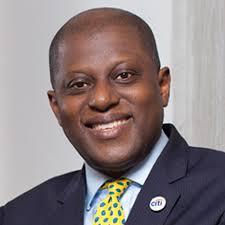Yemi Cardoso, Nigeria’s Central Bank Governor, is set to break his silence on the bank’s policy direction and economic outlook in his first address since Senate confirmation. The much-anticipated announcement will take place at the Chartered Institute of Bankers annual dinner after two critical rates meetings were postponed.
The Central Bank of Nigeria, legally obligated to conduct monetary policy committee (MPC) meetings every two months, has faced challenges holding these sessions since July. The lack of communication and urgency from Cardoso has raised concerns, especially as Nigeria grapples with soaring inflation, reaching an 18-year high of 27% in October.
Mayowa Badejo, a partner at 213 Capital, an investment and risk advisory firm, expressed optimism that the upcoming dinner would boost market confidence and reduce uncertainties surrounding the CBN’s actions. The event provides Cardoso an opportunity to interact with bankers, share his monetary policy plans, and seek their cooperation.
KPMG, a financial and business advisory firm, predicts Nigeria’s headline inflation to reach 30% by December 2023. Analysts had anticipated a rise in interest rates this month to counter inflation and protect banks from potential capital losses. However, the lack of communication and potential delay until 2024 has created a void.
The absence of MPC meetings for four months and Cardoso’s silence since his appointment are also impacting foreign investor confidence, particularly as the naira trades at its lowest levels due to a dollar shortage. While acting CBN governor Folashodun Shonubi raised interest rates, Cardoso has yet to make any decisions, contributing to the uncertainty.
Ratecaptain reported the recent postponement of the MPC meeting scheduled for Monday and Tuesday, further fueling concerns. The decision to unveil an economic outlook for 2024 signals Cardoso’s readiness to address key issues. The rising food inflation, reaching 31.5% in October according to NBS data, underscores the urgency for decisive measures as Nigerians grapple with soaring prices of essential commodities.










